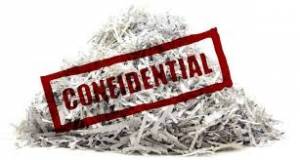The rule of thumb is to keep most important documents for at least three years. There are exceptions to the rule. But if you are in doubt about something, it is always good to hang onto it no matter how long. It is better to be safe than sorry. Here are a few tips you might find handy and help answer some of those questions.
- Receipts should be kept for three years for any items that you need to itemize for your tax returns. Keep them with your tax documents.
- Paycheck stubs have a lifespan of one year. Hang onto them until the end of the year to compare them with your W-2 and social security statements. Then, you can get rid of them.
- Medical bills vary depending on your insurance. Receipts for expenses can be kept for one year unless your insurance company needs proof or verification of visits and claims. Your insurance may request bills for hospital visits, doctor’s appointments, etc., to be shown at certain times. Think about the type of care you received or the type of expense to determine whether or not you should keep them.Avoid discarding these expenses for up to three years. If medical expenses total more than 7.5% of your adjusted gross income, you can deduct them on your taxes. Keep these for three years with your tax records.
- Bank and credit card statements need to be filed away for up to three years. The reason for holding onto bank statements is in case you are audited by the IRS. However, the three-year rule is a little different for your credit cards. If you have confirmed your charges and had proof of payment, then you can shred them. If you are using your credit card statements for tax deductions, hang on to them. Getting too much paper? Switch to online documents. Just remember to write a note, so you’ll know they are online when you go to retrieve them.
- Utility bills can be scrapped after one year. The exception is if you are claiming a home office tax deduction. Then, our good three-year rule comes into play.
- If you have records of loans that have been paid off, don’t get rid of them until it has been seven years. If you are still paying off a loan, store all records and statements together until you have paid it off and it has been seven years.
- Tax returns also go by the three-year recommendation. The returns can be trashed after three years from the date you filed the original return. Hold onto the returns for seven years if you file a claim.
- Investment and real estate records need to be handy for at least three years for audit reasons. In addition, you will be able to see how much taxes you owe when you sell the stocks or property.Monthly statements can be tossed when you have received your annual summaries.
- Any contracts, insurance documents, stock certificates, or property records that are active need to be held in a safe place. Only discard once the contracts are completed, and policies expired.
- There is never a lifespan on documents, such as marriage licenses, birth and death certificates, wills, adoption papers, and paid mortgages. These documents should always be kept and passed down between the generations.
